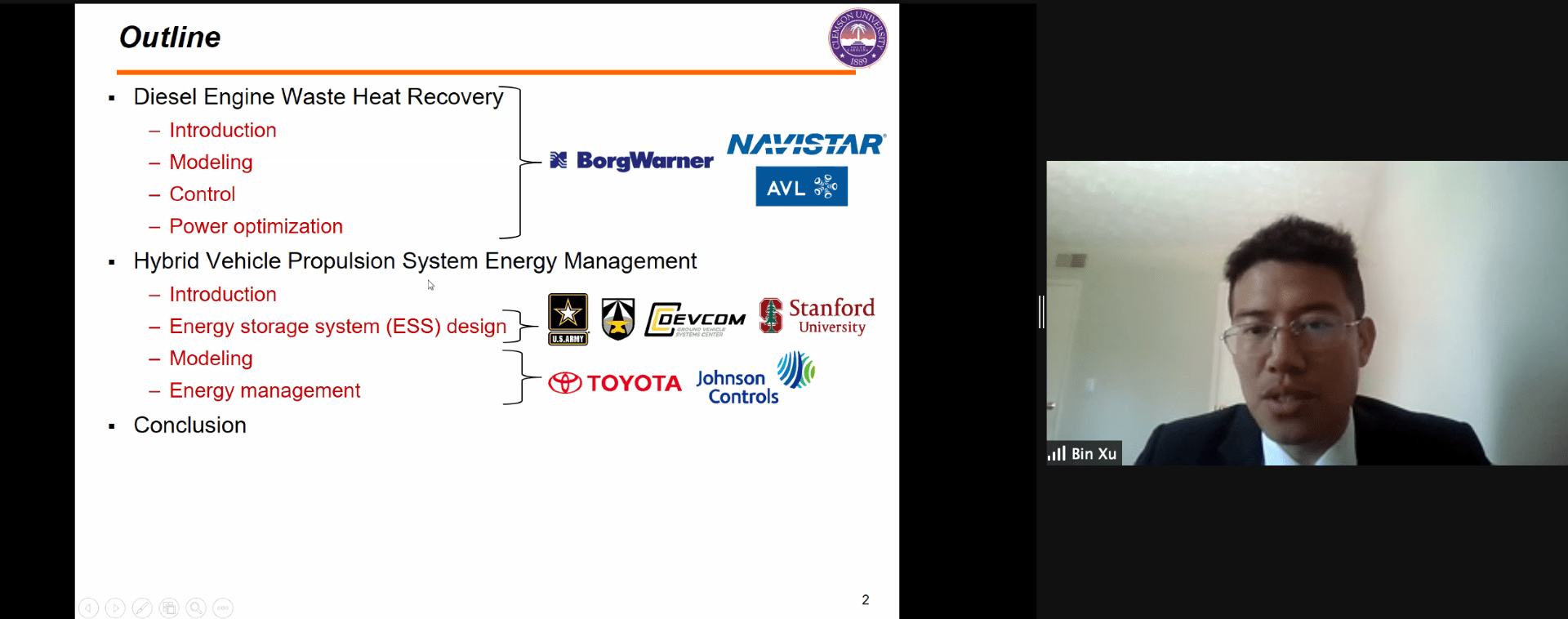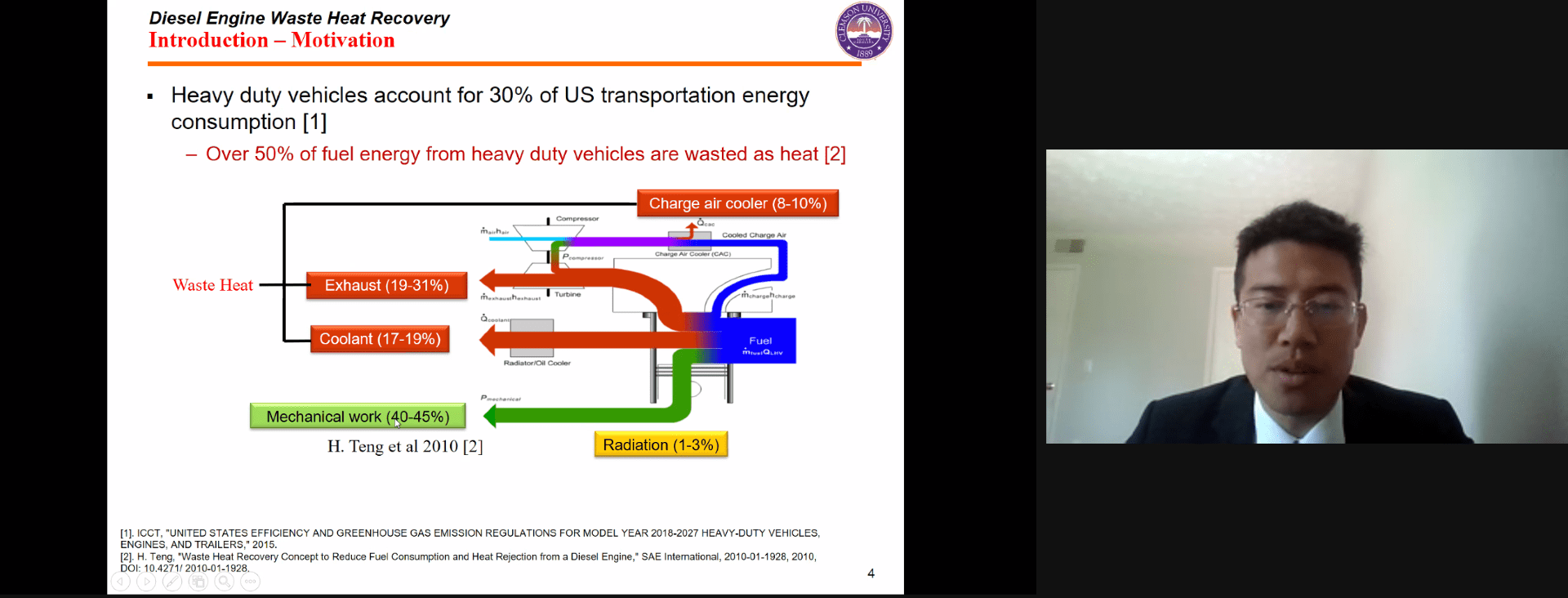Dr. Bin Xu, a Research Assistant Professor for the Department of Automotive Engineering at Clemson University, gave a seminar on Monday, March 8 over “Physics-based/ Data-driven Diesel Engine Waste Heat Recovery and Hybrid Vehicle Propulsion System Energy Management for Fuel Efficiency Improvement.”
Abstract: For internal combustion engines, the engine efficiency is generally below 40% for gasoline engines and 50% for diesel engines. For a heavy-duty diesel engine, around 40-60% of energy is wasted as heat via exhaust gas, EGR cooler, and coolant. Waste heat recovery (WHR) techniques have the potential to achieve the fuel economy and emission reduction goals for its mature technology and high efficiency. Conventional modeling and power analysis in WHR system focus on static engine operating conditions, whereas engine experiences torque variation even at highway conditions. To overcome the research gaps in dynamic modeling, control and optimization over highly transient engine operating conditions, a series of systematic modeling, control, optimization and experimental validation work are conducted to understand the characteristics of the WHR system and maximize the waste energy recovery. According to dyno test result, 3% absolute break thermal efficiency improvement is achieved in a 13L diesel engine with the developed WHR system.
The automotive industry is in the pace of reforming from petroleum-dependent to renewable energy-dependent for better sustainability and environmental friendly goals. Hybrid Electric Vehicle (HEV) is the first step towards the propulsion system electrification. With a given vehicle hardware, one key factor affecting the fuel consumption is the energy management of the engine and the electric motor, which could lead to 20% fuel consumption variation. Conventional energy management strategies (EMS) are either rule-based or model-based. Rule-based EMS lacks optimization and leaves large room for fuel saving. Model-based EMS like model predictive control depends on reduced order models, which require long time to build for the complex vehicle propulsion system and sacrifice model accuracy for short computation time. Model- free reinforcement learning (RL) based EMS is proposed to address the optimization concern of rule-based methods and reduced order model development concern of model-based methods. Parametric study is conducted to interpret the RL state/ action/ reward selection and their impact on fuel economy, which is supported by value functions and policy maps. An ensemble RL framework is proposed to integrate RL with conventional EMS methods for better fuel economy. Moreover, two warm start methods are proposed to reduce the learning time of RL as much as 68%.
Bio: Bin Xu joined the Department of Automotive Engineering, Clemson University in March 2020 as a Research Assistant Professor. Prior to coming to Clemson, Dr. Xu was a Research Scientist at the Stanford University. Dr. Xu received his B.S. degree from Hunan University China in 2013, Ph.D. from Clemson University in 2017, both in Automotive Engineering. Dr. Xu’s research focus on propulsion system modeling and control, particularly in the areas of physics-based and data-driven modeling, control, and fuel efficiency optimization. Over the past 4 years, Dr. Xu has published 31 peer-reviewed articles including 13 first-authored journal articles and his research have been cited 337 times in Google Scholar. Dr. Xu is the Guest Editor of SAE International Journal of Electrified Vehicles and a Review Editor of Frontiers in Energy Research. Additionally, Dr. Xu serves as the reviewer for 10+ journals in energy and transportation fields, such as Renewable and Sustainable Energy Reviews, Applied Energy, and IEEE Transactions on Intelligent Transportation Systems.

